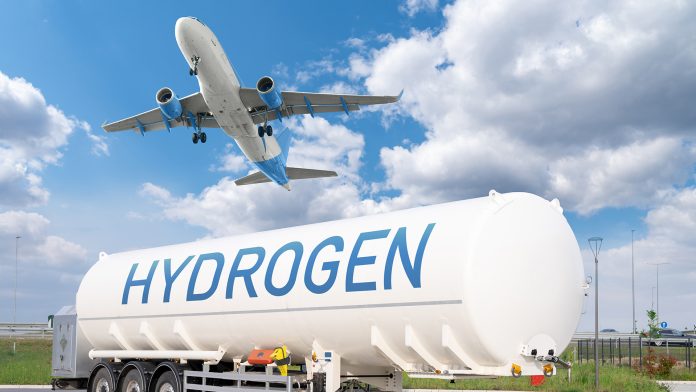EasyJet has successfully completed the UK’s first airside hydrogen refuelling trial at Bristol Airport.
The hydrogen refuelling trial, known as Project Acorn, tested the performance of hydrogen fuel in powering ground support equipment (GSE), specifically baggage tractors.
The trial involved an array of cross-industry partners, including Cranfield Aerospace Solutions, Cranfield University, Connected Places Catapult (CPC), DHL Supply Chain, Fuel Cell Systems, the IAAPS research institute, Jacobs, Mulag and TCR.
Project Acorn demonstrated that hydrogen refuelling could be used safely and reliably to power GSE in the busy environment of a live airport.
The team will utilise the findings of the trial to supplement research groups, such as Hydrogen in Aviation (HIA), to advance UK hydrogen infrastructure and develop regulatory and policy guidelines for airports, airlines, local authorities, and regulators.
The goal is to support the development of a regulatory framework for hydrogen’s use on an airfield, as due to the nascency of hydrogen in aviation, these do not currently exist.
Tim Johnson, Director for Strategy, Policy and Communications at the Civil Aviation Authority, explained the significance of the trial: “Projects such as this are cornerstones of our commitment to support innovation and decarbonisation in the industry.
“This trial will serve as the basis of a White Paper which we will also be contributing to, as well as allow for the creation of further safety guidance and regulatory standards for the use of hydrogen in aviation.
“We look forward to helping nurture this seed of the future greener aviation sector as it continues to grow.”
Benefits of hydrogen in aviation for the UK
Experts emphasise that hydrogen-powered aviation is crucial for achieving net zero emissions and offers significant economic benefits.
According to the Jet Zero Strategy, investing in hydrogen aviation could create over 60,000 jobs in the UK and contribute £18bn to the economy by 2050.
Green hydrogen, produced sustainably, emits no carbon and is pivotal for the industry’s decarbonisation.
The Jet Zero Council projects that such investment could secure up to 19% of the global aerospace industry by 2050, adding £34bn annually to the UK economy.
This investment not only addresses environmental concerns but also maintains the societal benefits of air travel.
David Morgan, Chief Operating Officer at easyJet, added: “It’s without doubt that hydrogen will be an important fuel of the future for short-haul aviation, as demonstrated by the rate of innovation we’re seeing.
“While the technology is advancing at an exciting pace, as hydrogen isn’t used in commercial aviation today, there is currently no regulatory guidance in place on how it can and should be used, and so trials like this are very important in building the safety case and providing critical data and insight to inform the development of the industry’s first regulatory framework.
“This will ensure regulation not only keeps pace with innovation, but importantly also supports the industry in meeting its decarbonisation targets by 2050.”
Outcomes of Project Acorn
The UK aviation industry faces a tight deadline to prepare its ground infrastructure, safety standards, and operational procedures for hydrogen use.
Project Acorn serves as an initial step towards this goal, conducting trials of GSE to gain Civil Aviation Authority (CAA) approval for airside hydrogen refuelling.
These trials, conducted with CAA oversight, also involve safety assessments and emergency planning with local authorities at Bristol Airport, providing vital insights for future hydrogen transitions at other airports.
The project paves the way for long-term hydrogen GSE deployment at Bristol Airport and prepares for trials and commercial operations of hydrogen-fuelled aircraft.
Despite hydrogen’s potential as a zero-emission fuel, significant regulatory and safety challenges persist.
The trial of gaseous hydrogen-fuelled GSE at Bristol Airport marks a key milestone, offering insights crucial for informing hydrogen infrastructure policy and safe handling in airport operations.
Ultimately, this research aims to support wider aviation decarbonisation by facilitating the rapid uptake of hydrogen.









